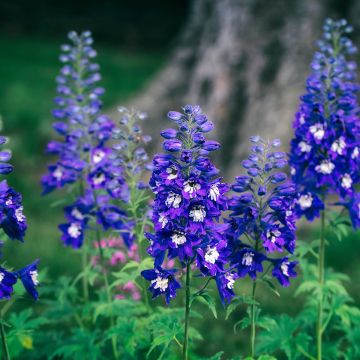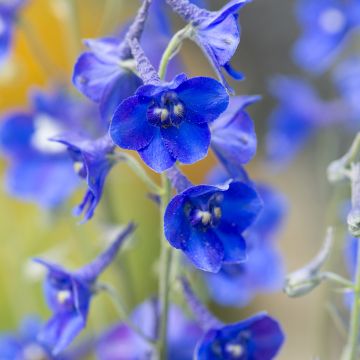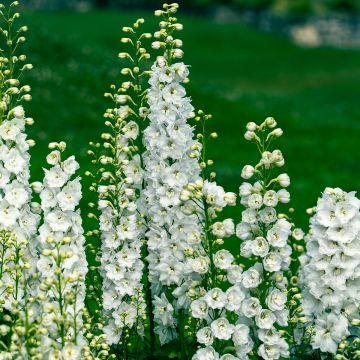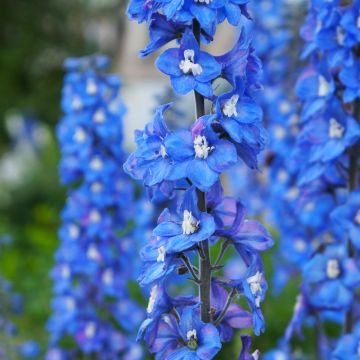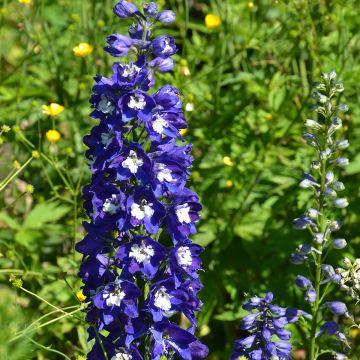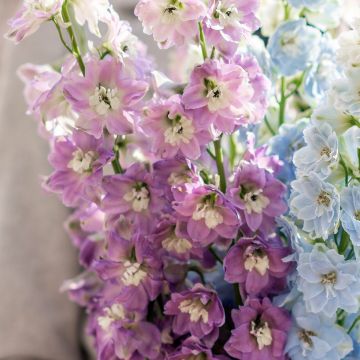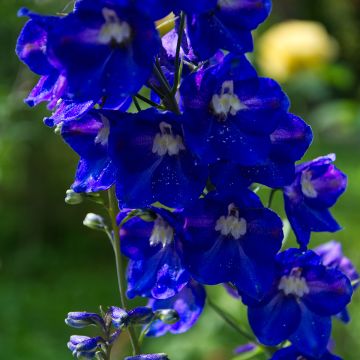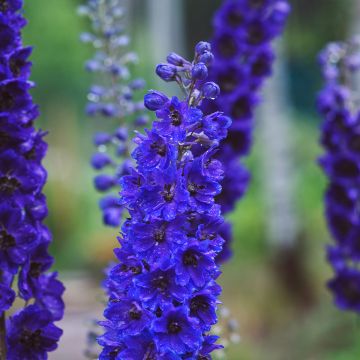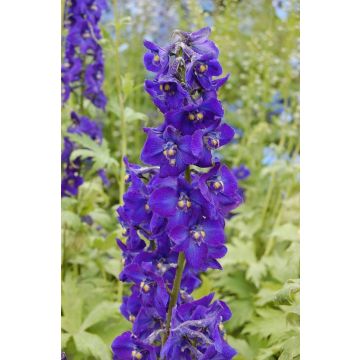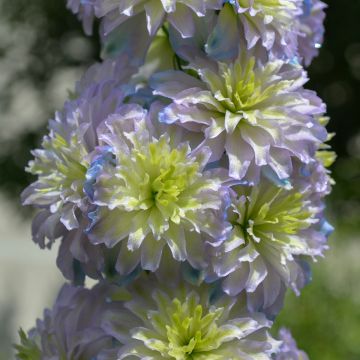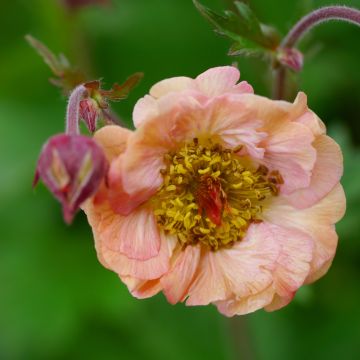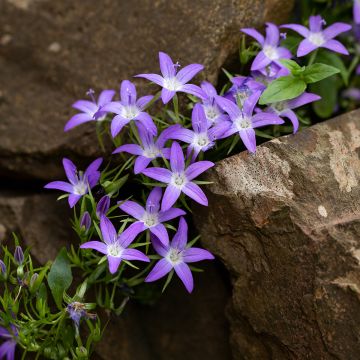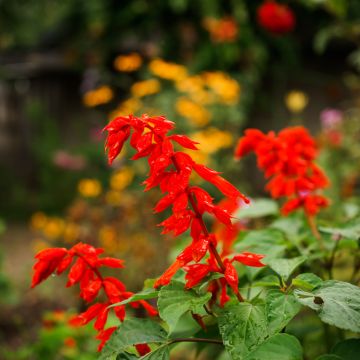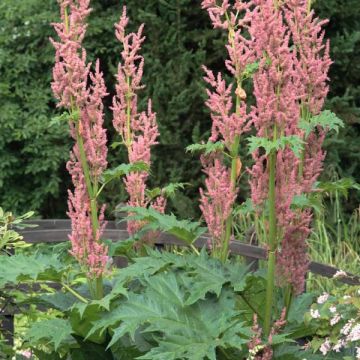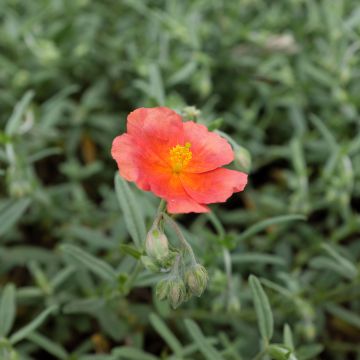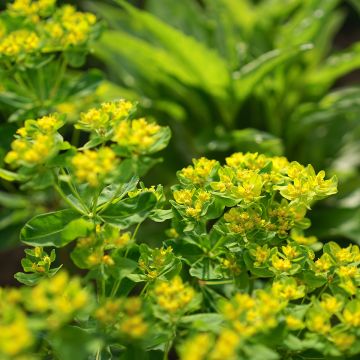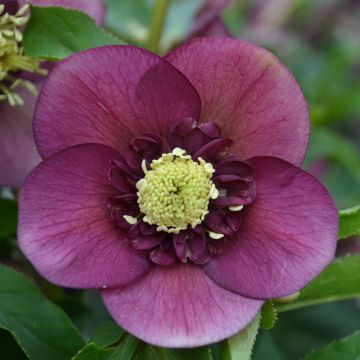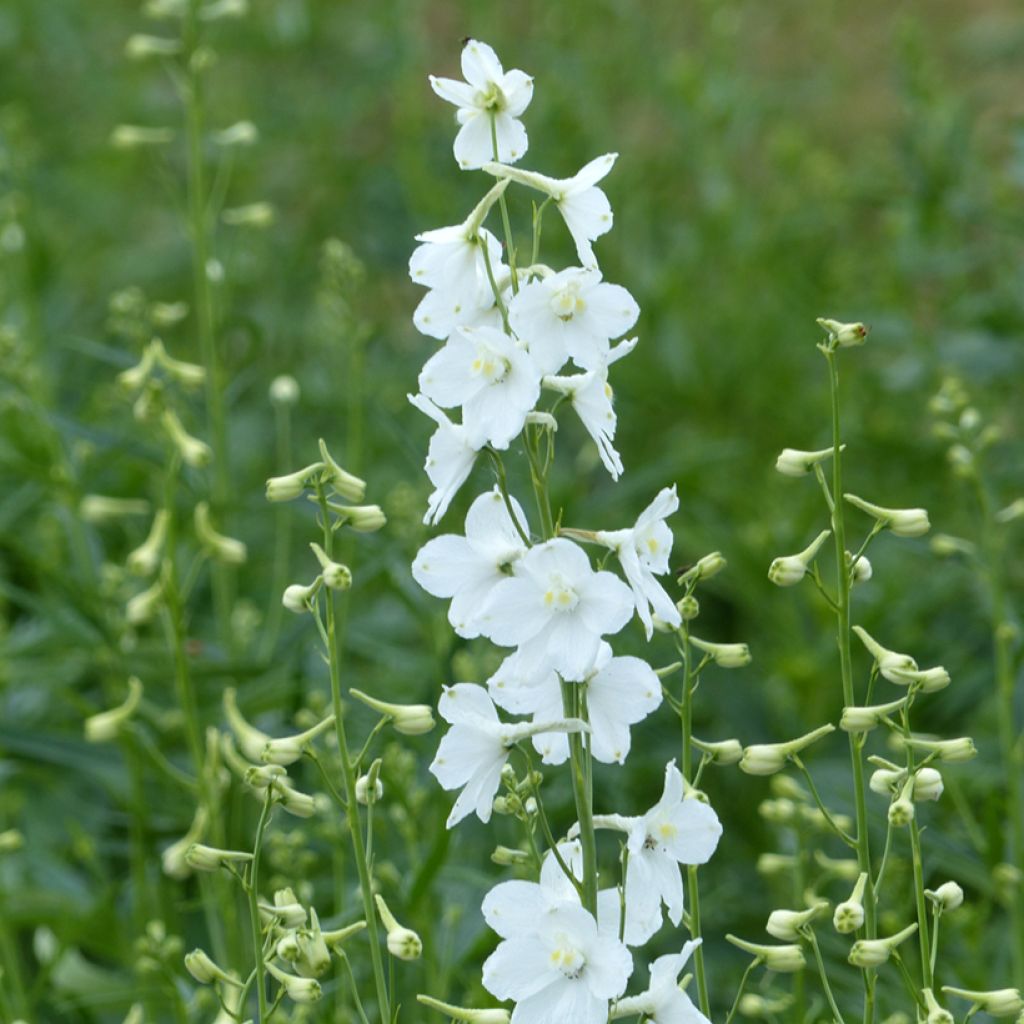

Delphinium belladonna Casablanca seeds - Larkspur
Delphinium belladonna Casablanca seeds - Larkspur
Delphinium (x) belladonna Casablanca
Larkspur, Belladonna Delphinium
Special offer!
Receive a €20 voucher for any order over €90 (excluding delivery costs, credit notes, and plastic-free options)!
1- Add your favorite plants to your cart.
2- Once you have reached €90, confirm your order (you can even choose the delivery date!).
3- As soon as your order is shipped, you will receive an email containing your voucher code, valid for 3 months (90 days).
Your voucher is unique and can only be used once, for any order with a minimum value of €20, excluding delivery costs.
Can be combined with other current offers, non-divisible and non-refundable.
Home or relay delivery (depending on size and destination)
Schedule delivery date,
and select date in basket
This plant carries a 6 months recovery warranty
More information
We guarantee the quality of our plants for a full growing cycle, and will replace at our expense any plant that fails to recover under normal climatic and planting conditions.
Would this plant suit my garden?
Set up your Plantfit profile →
Description
Delphinium belladonna Casablanca, or larkspur, is a perennial variety renowned for its pure white flowers and perpetual flowering. Less dense than other delphiniums, its natural look works well in cottage gardens or floral compositions. Its flowers bloom on branched stems from late spring to autumn, illuminating borders and flowerbeds. This larkspur blooms from the first year and is less susceptible to diseases.
Delphinium belladonna 'Casablanca' is a plant of the Ranunculaceae family. This cultivar belongs to a group of hybrids with the Delphinium elatum and D. grandiflorum as parents. It is a robust perennial that can reach up to 1.20 m in height with a width of 30 to 60 cm. Its branched stems bear clusters of star-shaped, pure white flowers, with subtly green-tinted centres. These graceful, 2 to 4 cm diameter flowers with a spur, appear in May-June and then in successive waves until autumn, especially if faded flowers are regularly removed. The green foliage is palmate and finely cut. It emerges in spring and dries up in autumn. The 'Casablanca' variety is particularly cold-resistant, to -34°C. The plant grows from a woody rhizome that vertically penetrates the soil, which should be loose and deep to accommodate it.
Delphiniums thrive in rich, well-drained soils, but they do not like very clayey or water-saturated soils. They withstand harsh winters and thrive when exposed to good sunlight. By respecting these conditions, you can enjoy their flowering year after year. 'Casablanca' fits perfectly in cottage-style gardens, where it brings graceful height and a touch of light. It pairs well with brightly coloured hollyhocks, such as the varieties 'Mars Magic' or 'Chaters Double Red', or pastel-toned plants like paniculate baby's breath and 'Dalmatian' mixed foxgloves. Its elegant stems also make it an excellent cut flower for delicate bouquets. Planted at the border or in groups, it adds refined brightness to sunny gardens.
Report an error about the product description
Flowering
Foliage
Plant habit
Safety measures
Botanical data
Delphinium
(x) belladonna
Casablanca
Ranunculaceae
Larkspur, Belladonna Delphinium
Cultivar or hybrid
ingestion
Cette plante est toxique si elle est ingérée volontairement ou involontairement.
Ne la plantez pas là où de jeunes enfants peuvent évoluer, et lavez-vous les mains après l'avoir manipulée.
Pensez à conserver l'étiquette de la plante, à la photographier ou à noter son nom, afin de faciliter le travail des professionnels de santé.
Davantage d'informations sur https://plantes-risque.info
Other Delphinium - Larkspur
View all →Planting and care
Sow 'Casablanca' Delphinium seeds directly outside, from April to May, in full sun, on a fertile, light, well-drained soil, well loosened beforehand. Bury the fine seeds to a depth of 6 mm in small holes spaced 30 cm apart. Keep the soil moist by watering regularly, especially during dry periods. Germination generally takes 14 to 21 days. When the seedlings are large enough to handle, thin out by planting only one young plant every 15 cm.
For earlier flowering, sow Delphinium seeds from August to October in 7.5 cm pots in good quality soil kept moist. Place the pots in a propagator or inside a plastic bag at a temperature of 15-20 °C until germination. Once the seedlings have developed, place them in a bright, but cooler location. Overwinter the plants in a cool, bright place, protected from frost by watering them sparingly. Transplant them to their final location the following spring. Water regularly until the plants are fully established.
Remove faded flowers to encourage more. Delphiniums thrive in sunny locations, sheltered from the wind, as well as in fertile soil, rich in organic matter and well-drained. Soil that is too wet or too dry is detrimental to the growth and flowering duration of the larkspur.
Plant Delphinium belladonna in spring and autumn in the ground or in a container. Make sure the container is large enough to accommodate it (50 cm x 50 cm) and keep it away from strong winds. Delphiniums are easy to grow but do have essential requirements: they dislike very clayey and wet soils, as well as dry and poor soils. The soil that suits them is good black soil, rich in humus, non-compact, moist, even in summer, but not waterlogged in winter. They also enjoy being in the sun.
The hybrid belladonna Delphiniums allow you to appreciate these plants differently, finding them faithfully where you expect them, for several years, without daily distribution of slug pellets.
Sowing period
Intended location
This item has not been reviewed yet - be the first to leave a review about it.
Similar products
Haven't found what you were looking for?
Hardiness is the lowest winter temperature a plant can endure without suffering serious damage or even dying. However, hardiness is affected by location (a sheltered area, such as a patio), protection (winter cover) and soil type (hardiness is improved by well-drained soil).

Photo Sharing Terms & Conditions
In order to encourage gardeners to interact and share their experiences, Promesse de fleurs offers various media enabling content to be uploaded onto its Site - in particular via the ‘Photo sharing’ module.
The User agrees to refrain from:
- Posting any content that is illegal, prejudicial, insulting, racist, inciteful to hatred, revisionist, contrary to public decency, that infringes on privacy or on the privacy rights of third parties, in particular the publicity rights of persons and goods, intellectual property rights, or the right to privacy.
- Submitting content on behalf of a third party;
- Impersonate the identity of a third party and/or publish any personal information about a third party;
In general, the User undertakes to refrain from any unethical behaviour.
All Content (in particular text, comments, files, images, photos, videos, creative works, etc.), which may be subject to property or intellectual property rights, image or other private rights, shall remain the property of the User, subject to the limited rights granted by the terms of the licence granted by Promesse de fleurs as stated below. Users are at liberty to publish or not to publish such Content on the Site, notably via the ‘Photo Sharing’ facility, and accept that this Content shall be made public and freely accessible, notably on the Internet.
Users further acknowledge, undertake to have ,and guarantee that they hold all necessary rights and permissions to publish such material on the Site, in particular with regard to the legislation in force pertaining to any privacy, property, intellectual property, image, or contractual rights, or rights of any other nature. By publishing such Content on the Site, Users acknowledge accepting full liability as publishers of the Content within the meaning of the law, and grant Promesse de fleurs, free of charge, an inclusive, worldwide licence for the said Content for the entire duration of its publication, including all reproduction, representation, up/downloading, displaying, performing, transmission, and storage rights.
Users also grant permission for their name to be linked to the Content and accept that this link may not always be made available.
By engaging in posting material, Users consent to their Content becoming automatically accessible on the Internet, in particular on other sites and/or blogs and/or web pages of the Promesse de fleurs site, including in particular social pages and the Promesse de fleurs catalogue.
Users may secure the removal of entrusted content free of charge by issuing a simple request via our contact form.
The flowering period indicated on our website applies to countries and regions located in USDA zone 8 (France, the United Kingdom, Ireland, the Netherlands, etc.)
It will vary according to where you live:
- In zones 9 to 10 (Italy, Spain, Greece, etc.), flowering will occur about 2 to 4 weeks earlier.
- In zones 6 to 7 (Germany, Poland, Slovenia, and lower mountainous regions), flowering will be delayed by 2 to 3 weeks.
- In zone 5 (Central Europe, Scandinavia), blooming will be delayed by 3 to 5 weeks.
In temperate climates, pruning of spring-flowering shrubs (forsythia, spireas, etc.) should be done just after flowering.
Pruning of summer-flowering shrubs (Indian Lilac, Perovskia, etc.) can be done in winter or spring.
In cold regions as well as with frost-sensitive plants, avoid pruning too early when severe frosts may still occur.
The planting period indicated on our website applies to countries and regions located in USDA zone 8 (France, United Kingdom, Ireland, Netherlands).
It will vary according to where you live:
- In Mediterranean zones (Marseille, Madrid, Milan, etc.), autumn and winter are the best planting periods.
- In continental zones (Strasbourg, Munich, Vienna, etc.), delay planting by 2 to 3 weeks in spring and bring it forward by 2 to 4 weeks in autumn.
- In mountainous regions (the Alps, Pyrenees, Carpathians, etc.), it is best to plant in late spring (May-June) or late summer (August-September).
The harvesting period indicated on our website applies to countries and regions in USDA zone 8 (France, England, Ireland, the Netherlands).
In colder areas (Scandinavia, Poland, Austria...) fruit and vegetable harvests are likely to be delayed by 3-4 weeks.
In warmer areas (Italy, Spain, Greece, etc.), harvesting will probably take place earlier, depending on weather conditions.
The sowing periods indicated on our website apply to countries and regions within USDA Zone 8 (France, UK, Ireland, Netherlands).
In colder areas (Scandinavia, Poland, Austria...), delay any outdoor sowing by 3-4 weeks, or sow under glass.
In warmer climes (Italy, Spain, Greece, etc.), bring outdoor sowing forward by a few weeks.






























